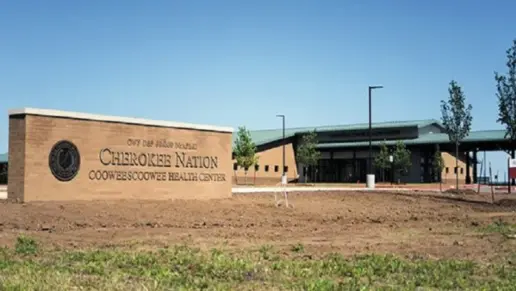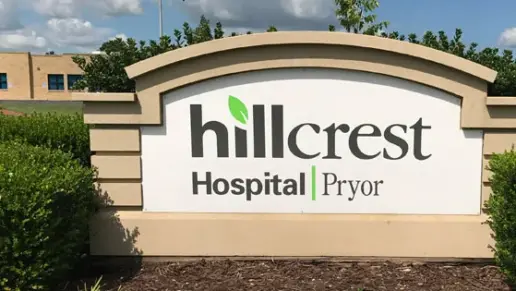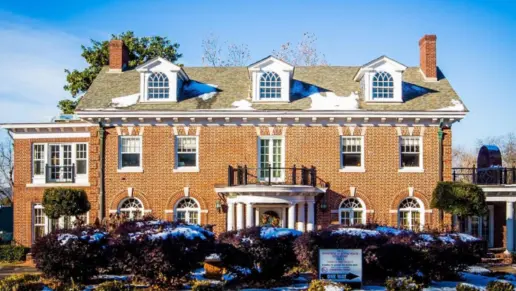I have a family in there. Staff is incredibly rude and unwilling to listen to things that might help them better understand the patient, if you call once a week to talk to patient or get any kind of update the staff acts as if the phone call comes out of there paycheck, pati ...
About Griffin Memorial Hospital
Located in Norman, Oklahoma, Griffin Memorial Hospital provides psychiatric services for adults with severe mental illness. They also treat those who have addiction disorders in addition to mental health concerns. In addition to inpatient treatment, they help clients connect with outpatient services so they can continue their recovery when they leave the facility.
The facility can hold up to 120 clients at a time, with more than 350 staff members available to assist clients. You’ll be assigned a clinical team that includes a psychiatrist, social worker, psychologist, and nurse. Soon after you’re admitted, the team will evaluate you to understand how your condition has affected you physically, socially, emotionally, and behaviorally. Once that’s complete, they’ll create a custom treatment plan just for you. There are many different therapeutic and recreational groups offered throughout the day, and you’ll attend certain ones based on your plan.
When you’re ready to leave inpatient care, they’ll help you take care of all of your next steps. Staff members will connect you with outpatient treatment, housing information and referrals, and appropriate medication if you need it. Your family can be involved in the discharge planning process.
The Hospital is accredited by The Joint Commission. They’ve received generally positive feedback, especially from clients who say they didn’t get an accurate diagnosis, treatment plan, and medication until they came to this facility. Some reviewers note negative interactions with other dysregulated clients residing nearby, though ratings on the staff were high across the board.
Facility Overview
Latest Reviews
Rehab Score
Gallery
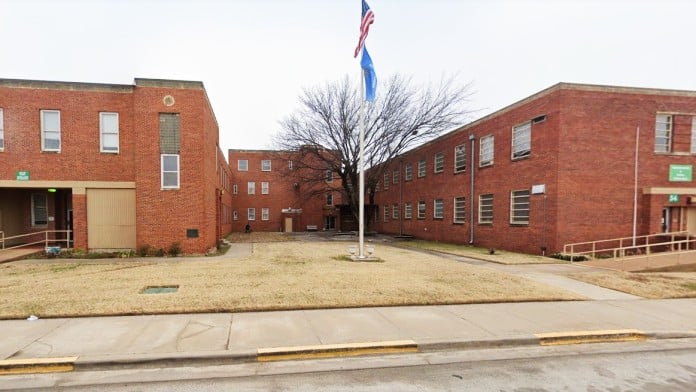
Location
Other Forms of Payment
Private insurance refers to any kind of healthcare coverage that isn't from the state or federal government. This includes individual and family plans offered by an employer or purchased from the Insurance Marketplace. Every plan will have different requirements and out of pocket costs so be sure to get the full details before you start treatment.
Self-pay involves paying for treatment out of your own pocket. You can use savings or credit, get a personal loan, or receive help from family and friends to fund your treatment. If you don't have insurance or your insurance plan doesn't cover a specific program, self-pay can help ensure you still get the care you need.
Financial aid can take many forms. Centers may have grants or scholarships available to clients who meet eligibility requirements. Programs that receive SAMHSA grants may have financial aid available for those who need treatment as well. Grants and scholarships can help you pai for treatment without having to repay.
Medicare is a federal program that provides health insurance for those 65 and older. It also serves people under 65 with chronic and disabling health challenges. To use Medicare for addiction treatment you need to find a program that accepts Medicare and is in network with your plan. Out of pocket costs and preauthorization requirements vary, so always check with your provider.
Military members, veterans, and eligible dependents have access to specific insurance programs that help them get the care they need. TRICARE and VA insurance can help you access low cost or no cost addiction and mental health treatment. Programs that accept military insurance often have targeted treatment focused on the unique challenges military members, veterans, and their families face.
Medicaid is a state based program that helps lower-income individuals and families pay for healthcare. Medicaid covers addiction treatment so those enrolled can use their coverage to pay for rehab. When a program accepts Medicaid the client often pays very little or nothing out of their own pocket.
Addiction Treatments
Levels of Care
Treatments
Many of those suffering from addiction also suffer from mental or emotional illnesses like schizophrenia, bipolar disorder, depression, or anxiety disorders. Rehab and other substance abuse facilities treating those with a dual diagnosis or co-occurring disorder administer psychiatric treatment to address the person's mental health issue in addition to drug and alcohol rehabilitation.
Mental health rehabs focus on helping individuals recover from mental illnesses like bipolar disorder, clinical depression, anxiety disorders, schizophrenia, and more. Mental health professionals at these facilities are trained to understand and treat mental health issues, both in individual and group settings.
Programs




Clinical Services
If you participate in cognitive behavioral therapy in Oklahoma, you can expect to attend somewhere between five and 20 sessions. This short term method is an effective way to learn healthy coping strategies that help you change your thinking and behavior patterns.
Group therapy is any therapeutic work that happens in a group (not one-on-one). There are a number of different group therapy modalities, including support groups, experiential therapy, psycho-education, and more. Group therapy involves treatment as well as processing interaction between group members.
In individual therapy, a patient meets one-on-one with a trained psychologist or counselor. Therapy is a pivotal part of effective substance abuse treatment, as it often covers root causes of addiction, including challenges faced by the patient in their social, family, and work/school life.
Trauma therapy provides you with a safe and supportive environment in which you can confront and address the emotional and physical impacts of traumatic events. Your therapist helps you understand your emotional and physical responses and develop healthier coping skills, which lowers your anxiety level and provides you with greater self confidence.
Couples therapy often focuses on a specific problem, such as addiction, intimacy, jealousy, or finances. Treatment is solution focused and change oriented. The couple works with the therapist to identify goals for therapy and actively participates in learning skills and behaviors to reach those goals.
Family therapy offers a safe space for family members to openly talk about their feelings and the challenges that addiction has triggered. This process helps to improve their understanding of the disease of addiction and supports the family's unified approach to the recovery journey.
Nutrition therapy teaches you the importance of nutrition in recovery and overall health. You'll learn healthy ways to eat, which gives you the energy and strength that are essential for recovery. This treatment may involve training in grocery shopping and meal preparation.
Using recreational therapy in Oklahoma within a drug and alcohol addiction treatment program helps you find joy and purpose within healthy activities. These could include gardening, group games, team sports, and swimming. These activities promote relaxation and social interaction, which are crucial to sustain long term recovery.
Staff & Accreditations
Staff
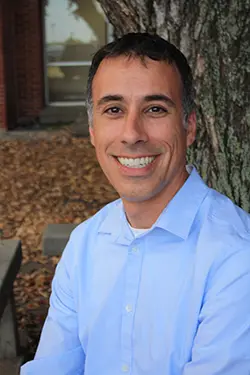
Medical Director

Associate Program Director for GMH Psychiatry Residency Program

Associate Program Director for GMH Psychiatry Residency Program
Accreditations

The Joint Commission, formerly known as JCAHO, is a nonprofit organization that accredits rehab organizations and programs. Founded in 1951, the Joint Commision's mission is to improve the quality of patient care and demonstrating the quality of patient care.
Joint Commission Accreditation: Yes
Contact Information
900 East Main street
Norman OK, 73071
